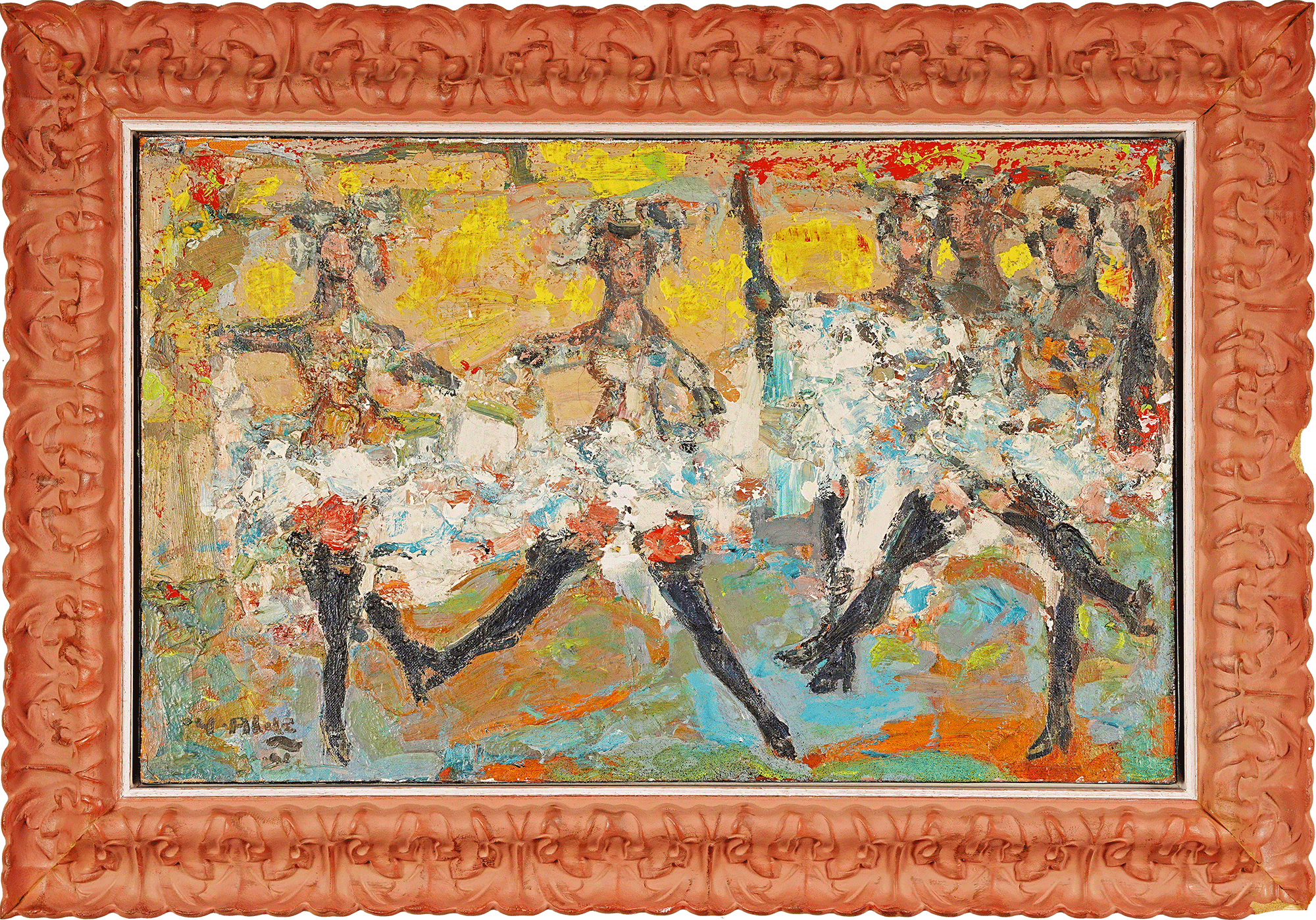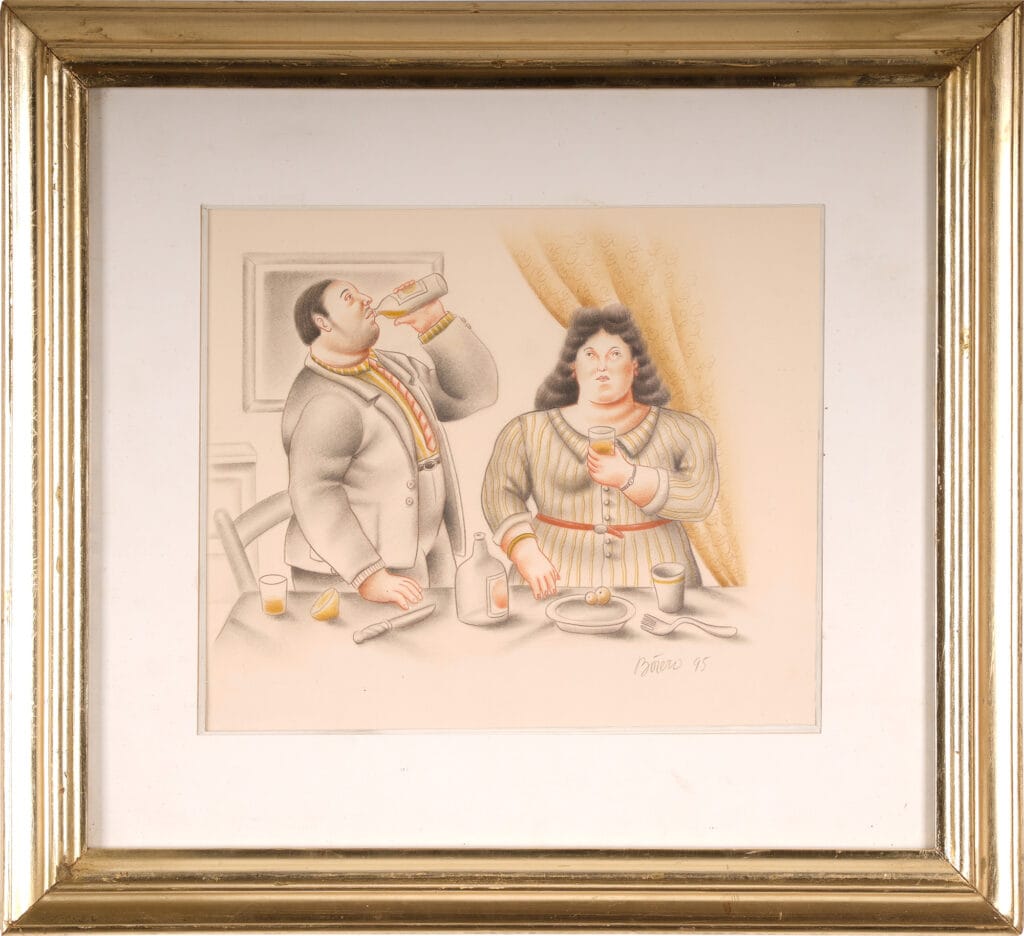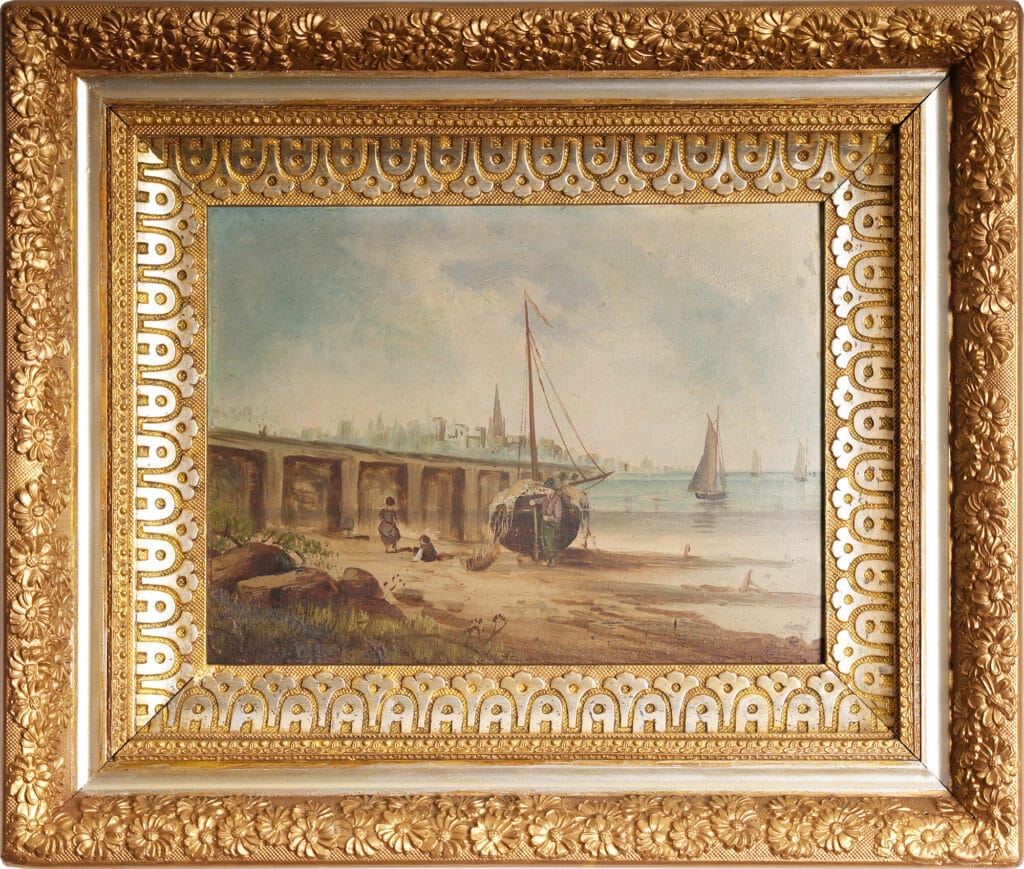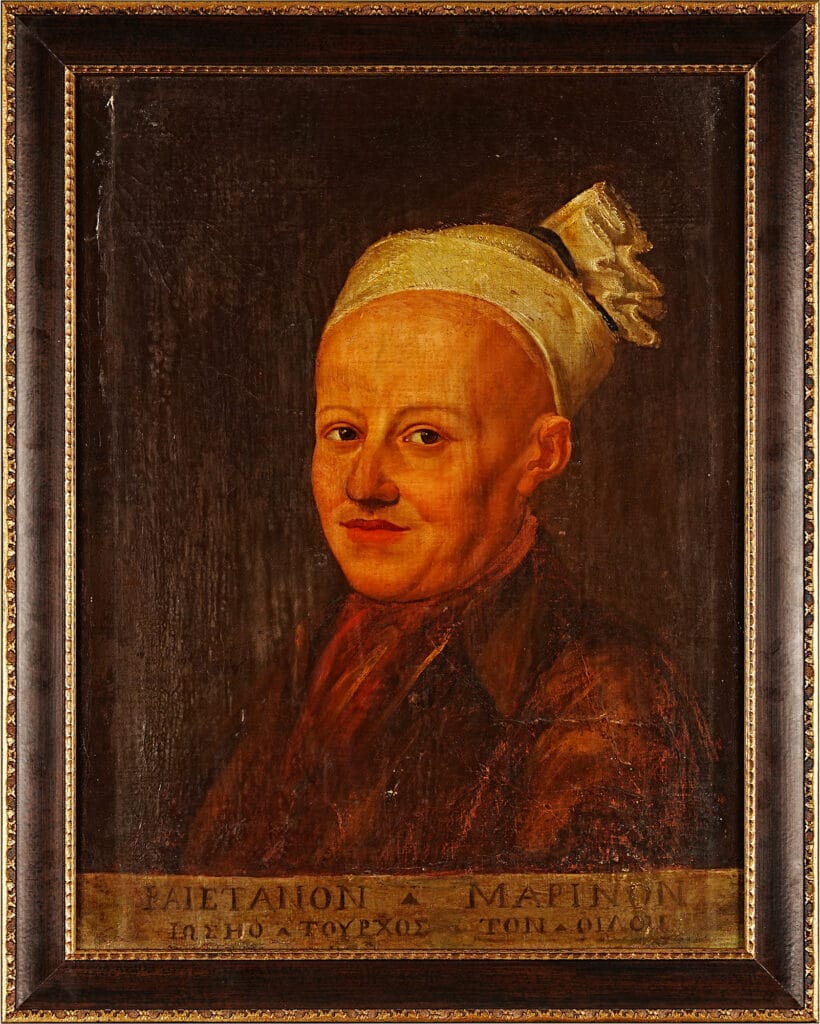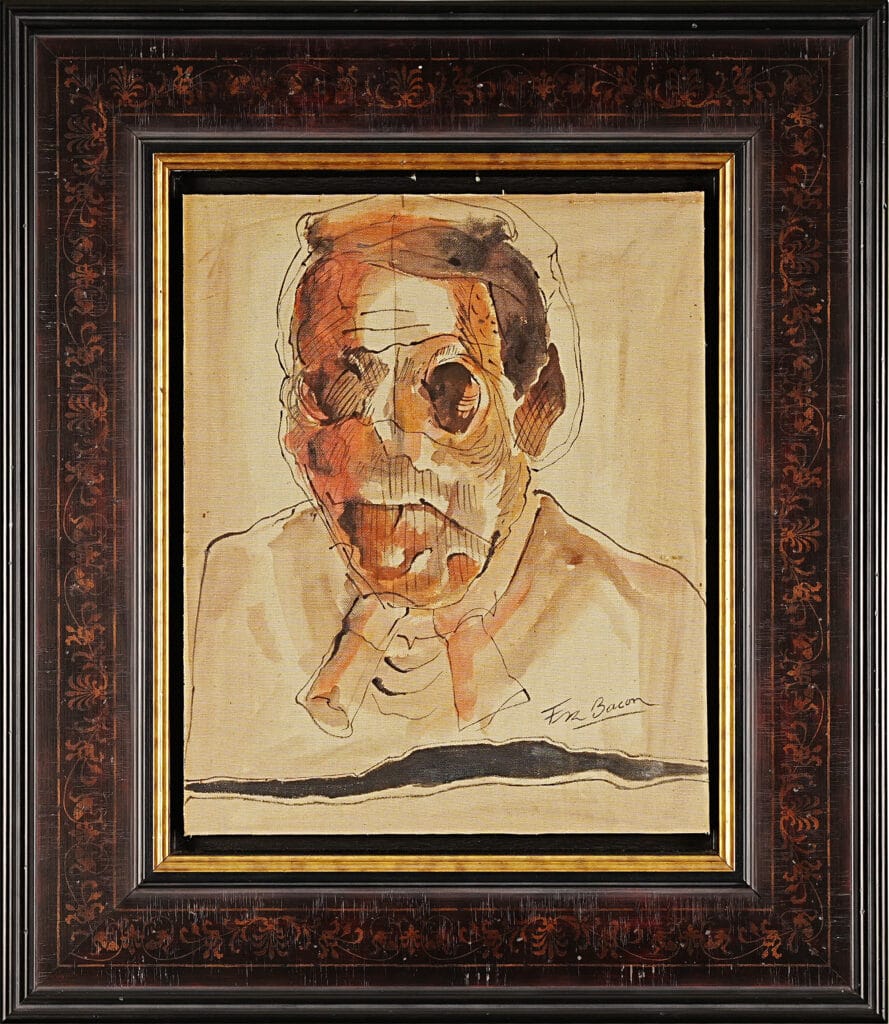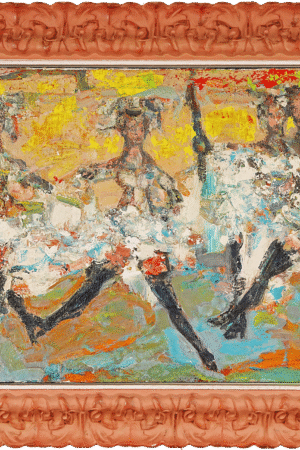Description
Attributed to Yvette Alde, this lively work captures the energy of Montmartre’s cabaret scene. A can-can performance bursts to life through bold brushstrokes and vivid colors, conveying rhythm and movement. The contrast of warm stage light against deep shadows enhances the dramatic mood. With its dynamic composition, the piece stands as a vibrant tribute to 20th-century Parisian nightlife and its theatrical spirit.
Yvette Alde, born on June 28, 1911, in France, was a prominent painter, lithographer, and illustrator associated with the School of Paris. She pursued her formal art education at the Académie de la Grande Chaumière, where she studied under renowned instructors Charles Picart Le Doux and André Lhote. This classical and modernist training provided Alde with a strong foundation in composition, perspective, and the technical aspects of painting and lithography.
Early Career and Exhibitions
Alde made her debut at the Paris Salon in 1933, signaling the emergence of a distinctive artistic voice. Her first solo exhibition followed in Barcelona in December 1935, where her work immediately drew attention for its innovative treatment of form and color. These early exhibitions helped establish her reputation both in France and internationally as a painter capable of combining technical skill with expressive, emotive qualities.
Artistic Style and Themes
Yvette Alde’s body of work spans landscapes, still lifes, and human figures, often marked by generous volumes, bold brushwork, and thick, textured application of paint. Her style balances figurative representation with a subtle abstraction, emphasizing form, weight, and spatial presence. Alde’s figures convey a sense of vitality and physicality, while her landscapes and still lifes are noted for their rhythmic composition and harmonic use of color.
Her approach reflects both her classical training and her engagement with modernist trends in Paris during the mid-20th century. Alde’s works exhibit a sensitivity to light, shadow, and texture, creating a tactile and visually immersive experience.
Recognition and Collections
Throughout her career, Alde’s work was recognized for its originality and technical mastery. Her paintings and lithographs are included in the collections of prominent institutions, including the Musée d’Art Moderne de Paris, the Musée Carnavalet, and the Princeton University Art Museum. These collections preserve her contribution to mid-century French art and ensure that her innovative approach continues to influence artists and scholars.
Legacy
Yvette Alde remains a notable figure within the School of Paris, admired for her distinctive use of volume, her expressive brushwork, and her ability to combine classical techniques with modernist sensibilities. Her work continues to offer insight into the artistic innovations of 20th-century France and stands as a testament to her skill, creativity, and lasting impact on the art world.

